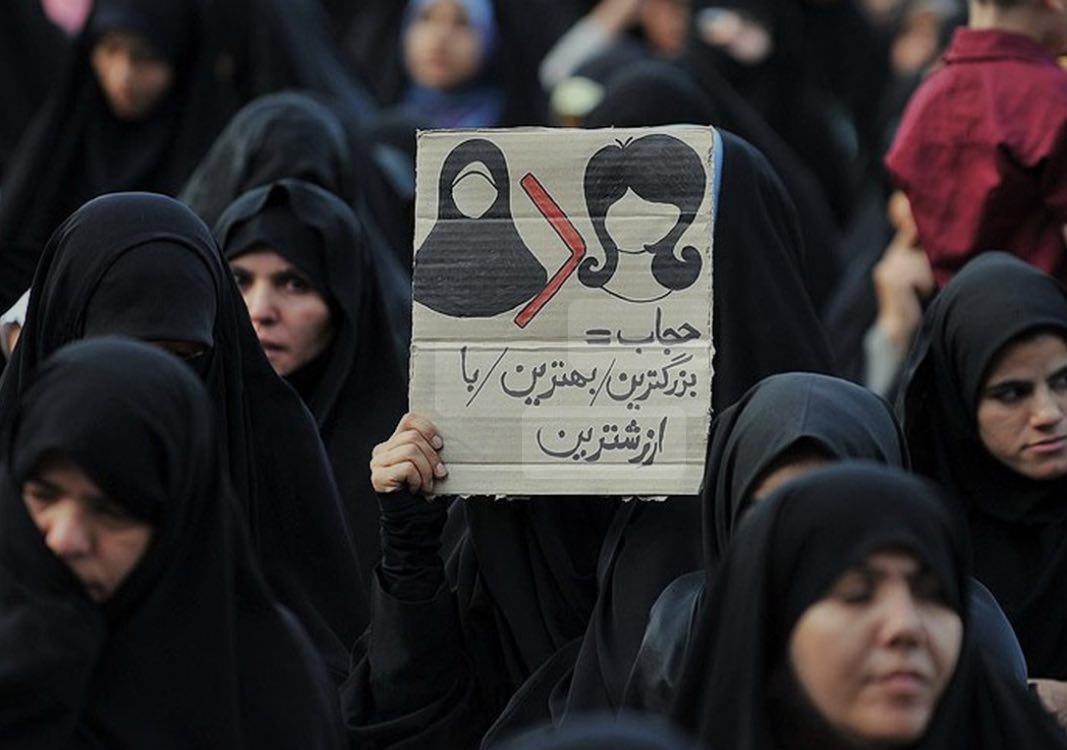Hijab from Pahlavi to Today
Hijab from Pahlavi to Today
Two events, 48 years apart, stand opposed to each other: the dress code reform in December 1935 and the enforcement of the mandatory Islamic hijab law in August 1983. In both instances, women were the subjects of top-down changes with political origins, although the consequences of these actions, leading to 45 years of mandatory hijab enforcement, cannot be considered equal.
What worries the religious government in Iran today, prompting it to come forward with a tool called the Law of Chastity and Hijab, is a chaotic puzzle that indicates the mandatory Islamic hijab is no longer, at least for part of Iranian society, the issue it was once portrayed as by Morteza Motahhari, a theorist of the Islamic Republic, in his book. The government, which had tried all means alongside coercion with different forms and names since the 1990s, found itself at a historical crossroads with the death of Mahsa Amini in the custody of the Guidance Patrol in September 2022.
A Law That Cannot Be Enforced
Ahmad Bokharaei, a sociologist in Tehran, referring to the legalization of the bill supporting families through promoting the culture of chastity and hijab, believes that this law will not be announced on the specified date, December 14. He states that this law has been criticized from various angles, and even hardliners, while not outright saying the law is wrong, agree that it is unenforceable and are concerned about its consequences.
According to Article 1 of the Civil Code, the enactments of the Islamic Consultative Assembly and the results of referendums, after going through the legal process, are sent to the President. The President must sign and announce them to the executors within five days and issue an order for their publication. The note to this article states that if the President refrains from signing or announcing within the mentioned period, the official gazette is obliged, by order of the Speaker of the Islamic Consultative Assembly, to publish the enactment within 72 hours.
Ahmad Bokharaei views the statements by Zahra Behrouzi Azar, Deputy for Women’s Affairs of the Iranian President, about the reverse effects and execution ambiguities of this law as indicative of its inherent and semantic flaws. The author of the book ‘Democracy and Its Enemies in Iran’ speaks of the hidden function of proposing the Law of Chastity and Hijab for Masoud Pezeshkian and his government.
He adds that Mr. Pezeshkian needs to build credibility for himself, and this issue could be seen as beneficial for him and as positive records for his government in the eyes of the people. Mr. Bokharaei says that Masoud Pezeshkian is someone in whom all opposition forces in the deadlocked Iranian society have placed their hopes, and they might grant him this credibility to continue the path behind the superficial and apparent slogan of national unity. However, Sedigheh Vasmaghi, an Islamic scholar and critic of the mandatory hijab policy in Iran, finds this analysis far-fetched and says the reason for passing this law and highlighting it to this extent is not to credit Masoud Pezeshkian, the President of Iran.
This women’s rights activist asks, does it mean that hardliners are putting themselves more than ever against the people and discrediting themselves so that Pezeshkian gains credibility and the system is preserved? Despite this, Mr. Bokharaei insists on the significance of the potential non-announcement of this law, evaluating it as a result of the relative awareness of hardliners about the repercussions of announcing such a law. Sedigheh Vasmaghi believes the main concern is not whether the Law of Chastity and Hijab is announced or not, but rather that the existence of such a law is a cause for concern, as stated by this Islamic scholar.
The author of the book ‘Women and Islamic Jurisprudence’ finds the existence of a law that could serve as a tool in the hands of extremist groups against social peace worrying. Ms. Vasmaghi does not believe in compromise solutions or the reform or suspension of the Law of Chastity and Hijab, but instead says that the only thing that can alleviate the concerns of society, especially women, is the repeal of the hijab law. Ahmad Bokharaei also states that when a personal matter like hijab is placed under official supervision, it provokes reactions from religious groups as well, even those who have chosen hijab react because they see their hijab and beliefs being used instrumentally.
The author of the book ‘The Sociology of Silent Lives’ points to the pragmatism of women during the 2022 protests, saying they, including Ms. Vasmaghi, removed their headscarves under pressure and harm, paying a price for it and still paying, and are ready to continue paying. He believes this confrontation will lead to greater unity and cohesion among women. According to Sedigheh Vasmaghi, hijab-wearing women also value their hijab only when it is their choice.
According to Ms. Vasmaghi, when a woman wears a headscarf and believes people see her as following the model of the Islamic Republic, it is distressing for that woman as well. Ahmad Bokharaei refers to the multifaceted nature of pretense and the conflict between opinion and behavior as an institutionalized matter in Iranian society and considers hijab a bargaining chip for the Islamic government, which is manipulated to suit the goals of those in power and wealth.

